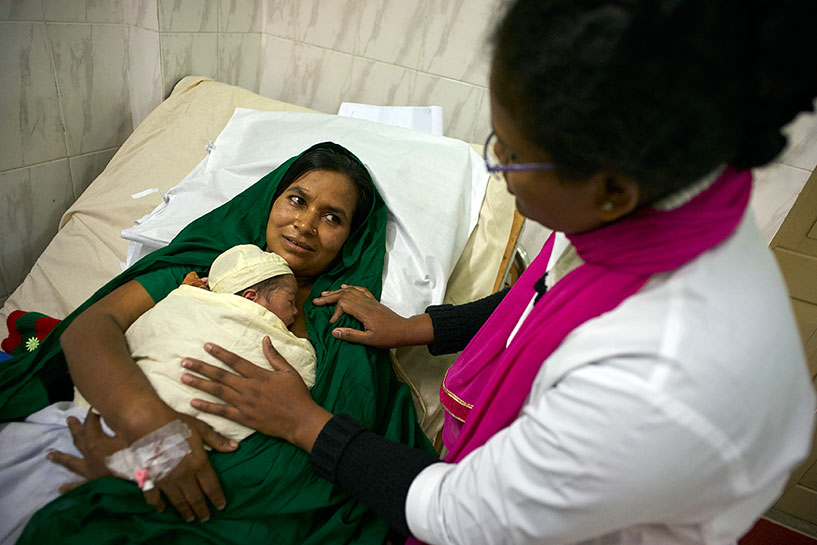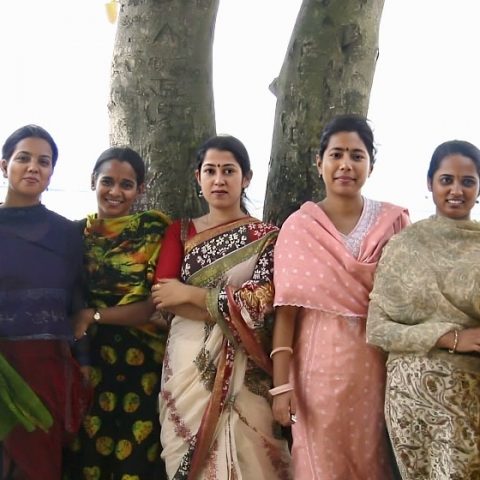Every day about 800 mothers die globally from complications at childbirth, mostly in low and middle-income countries. These deaths could be readily prevented by improving access to professional obstetric care. A recent paper by icddr,b researchers shows that increased travel time is a major disincentive for seeking facility-based obstetric care among the urban poor in Sylhet, Bangladesh. Every 5 minutes of increased travel time reduced the probability of delivery at a professional facility by 30%.
Maternal mortality remains a serious public health concern throughout the global South. Even though many countries (including Bangladesh) have made enormous strides in reducing maternal mortality, much work remains. As of 2010, Bangladesh has a maternal mortality rate of 194 deaths per 100,000 live births. A further 63% reduction is needed to meet the Sustainable Development Goal of less than 70 deaths per 100,000 live births.
Complications during childbirth account for a substantial number of maternal deaths. These deaths could be avoided if more mothers delivered their babies in professional facilities where they have access to emergency obstetric care. Urban women are more likely than rural women to choose facility deliveries – the national average in Bangladesh for facility births is 60% for urban areas versus 23% for rural areas. A similar pattern is seen in low-income countries globally. This has led many public health workers to focus research and intervention on rural mothers, while much less work has been done specifically on mothers among the urban poor. Highlighting the need for urban-specific maternal health interventions is recent data from the Bangladesh Urban Health Survey (2013) which indicates that less than four out of ten deliveries (37%) occurred in facilities.
Urban areas across the global South are extremely heterogeneous, with affluent gated communities living alongside destitute slums. Complex geographical patterns of inequality and invisible hierarchies are established along the narrow alleys and crowded highways of these growing megacities. Understanding this complex geography is a necessary step towards designing effective interventions for these communities.
In this spirit, a team of icddr,b researchers examined the influence of increased travel time on obstetric care seeking behavior among poor mothers in the city of Sylhet, Bangladesh. Led by Alayne Adams, the research linked rich geospatial census of health facilities conducted by icddr,b’s urban health team in 7 cities in Bangladesh, including Sylhet, with a survey of poor urban women that identified where their last birth was delivered.
Distance and travel time were calculated between each cluster of households from which women were sampled, and the nearest obstetric care facility, and multivariate statistical analysis was performed to determine the effect of increased travel time on the likelihood of home versus facility delivery.
The study finds that even modest increases to travel time can substantially reduce the probability of facility delivery in urban areas. In their data set, every 5 minutes of increased travel time reduced the probability of a facility delivery by 30%. Rapid urbanization presents unique challenges for global public health. Many of the lessons learned from in supporting the health and development of the rural poor no longer apply when these communities are transplanted to slums in sprawling megacities. We do not fully understand the geographical dynamics of these spaces, because these spaces have never existed before in human history. The work described here is a vital step towards overcoming this limitation.


